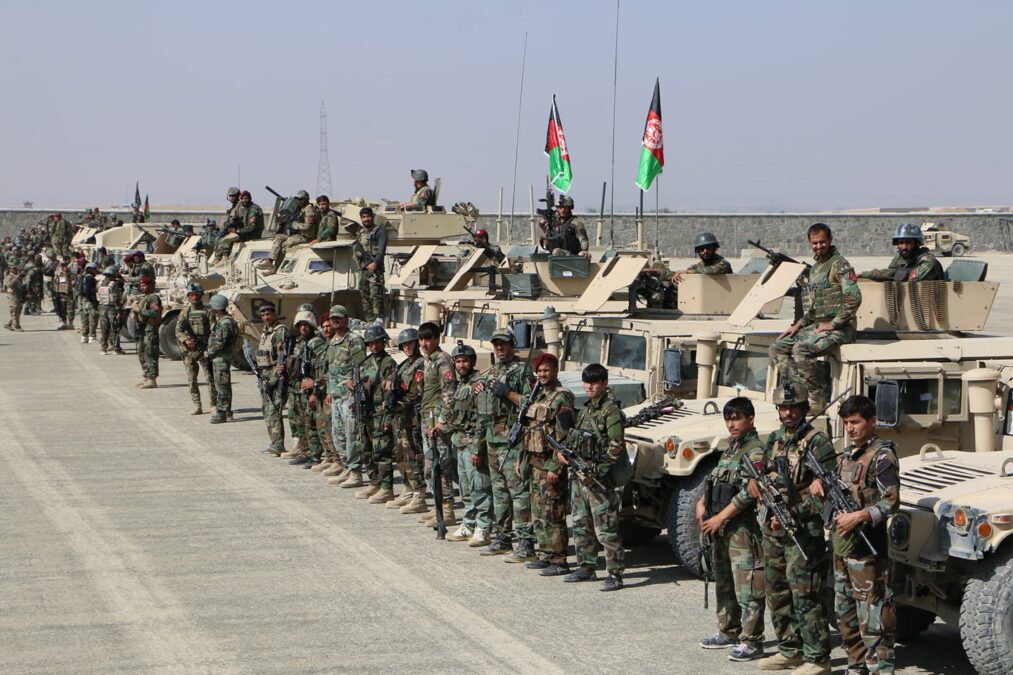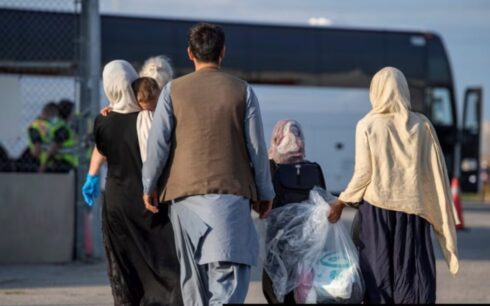A former member of the Army’s special forces unit under the previous government, who spent nine months in a Taliban prison at the intelligence’s 40th directorate in Shashdarak in Kabul, says he was “severely tortured” while in custody.
The 26-year-old officer, Abdullah (an alias), was released recently from the prison and told Amu that torture methods used on him have left him with damaged hands and abdominal problems.
According to Abdullah, the prison at the intelligence’s 40th directorate, has been turned into a torture chamber for those arrested on charges of cooperating with anti-Taliban forces.
He said women and children are also in this prison.
Abdullah said he had been on his way to Kabul from northern Afghanistan when he was arrested by the Taliban and accused of having links with the National Resistance Front (NRF), a major anti-Taliban movement.
“They put a scarf over me, blindfolded me and six hours later I found I was in Directorate 40,” he said.
Abdullah said he was electrocuted “for months”, hanged from the ceiling and beaten with the barrels of guns.
“They handcuffed my hands and feet together, connected one end of the cable to the little toe of my foot and the other end of the cable to the handcuffs. Then, they connected it to electricity. I would lose consciousness. Then they throw water so you wake up,” he said.
Another method of torture used on the prisoners was handcuffing [hands and feet together] behind their backs, which he said was the most painful method used by the Taliban in that prison.
Abdullah was beaten with the barrels of guns for his first eight days in prison, however he “was tortured” until two months before he was released on bail.
Taliban courts
Abdullah said that all those arrested and imprisoned were “severely tortured” without having had a defense attorney to represent them or their cases having been investigated.
“When they arrive at Directorate 40, either their hands are broken or one side of them is paralyzed,” Abdullah stated.
Abdullah added that during his nine months in prison, he witnessed the death of at least nine prisoners who died from injuries sustained during torture sessions.
“These nine people all died due to the torture. One of them was paralyzed. For another, his genitals were taken away (cut off),” he said.
According to the officer, at least 1,800 men, 200 women and 40 children were imprisoned there on various charges. Some for having ties to the NRF, some for being affiliated to Daesh and some for kidnapping.
He met some people in prison who were imprisoned along with their wives and children. Abdullah said one man, who was imprisoned with his wife and two children, was in prison on charges of having cooperated with the NRF. He said the man had told him that his wife gave birth to a baby in prison and had not had access to a doctor or nurse.
Amu attempted to get comment on these claims from the Taliban but the group’s spokesman Bilal Karimi did not respond to queries.
The Taliban is accused of committing extrajudicial killings of at least 160 members of the former government and security force members in the first 15 months of their rule in Afghanistan, according to a UN report. This despite a general amnesty granted by the group when it regained control of the country in August 2021.
At the time, the Taliban assured all former security force members that they would not be chased or harmed. However, reports continue to surface in the media about persecutions and killings of former government workers and security personnel at the hands of the Taliban.
In one incident on April 10, 2022, media outlets reported that the Taliban asked Qasim Qayim, a former officer of the ministry of interior affairs, to return to his job. He did so, but then disappeared. His body was subsequently handed over to his family days after his disappearance. His family told the media that they saw signs of torture on his body.
In another case on December 6, 2022, the family of a former army officer, Shamsullah, told Amu that he had been arrested by the Taliban but died in prison after being tortured.
The Taliban has often rejected reports issued by international organizations of killings of former government officials and security force members.
Human Rights Watch reported in November last year that in the first 14 months in power, the Taliban had killed at least 100 security force members who had worked for the previous government. This had been in just four provinces.
The New York Times meanwhile stated in a report in April last year that at least 500 military personnel from the previous government had been arrested and tortured by the Taliban in 32 provinces of Afghanistan.





